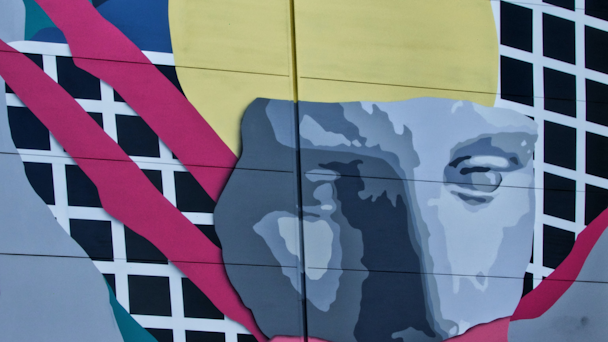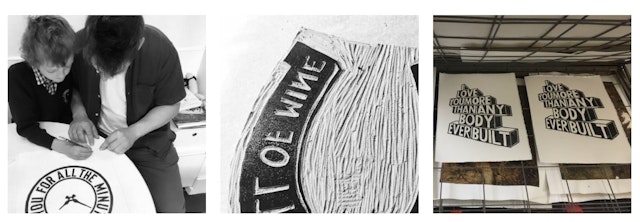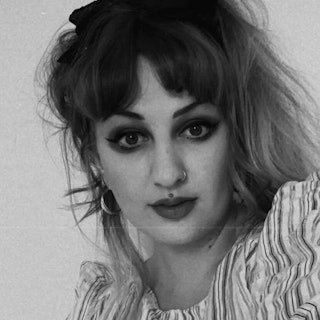How is adland supporting its neurodiverse workers?
Neurodiverse people have some of the most interesting and brilliant minds, which often lends them to excel within creative fields. But – as we ponder as part of The Drum’s Marketing and the Marginalized Deep Dive – is the ad industry doing enough to support workers with these traits?

How is the advertising industry supporting its neurodiverse workers?
Creative Equals, the global not-for-profit consultancy, found in its 2020 Equality Standard Accreditation survey that 18% of employees in advertising, marketing and media have one or more neurodiverse traits, including but not limited to ADHD, autism and dyslexia.
But while discussions around diversity and inclusion in the workplace have picked up steam in recent years, how often do these conversations consider neurodivergent people? And, considering how important individuals who think differently are to creative organizations, what policies are in place to facilitate their needs?
James Cross is a creative director at BBC Creative. He points out that advertising “craves the new, the different and the unexpected“ in its thinking. “So, it seems obvious to me that our industry will only thrive on diversity in all its forms, neurodiversity or otherwise.”
At the BBC, Cross says there is a new neurodiversity initiative in place – BBC Cape – designed to “promote acceptance and appreciation“ of neurodiversity and creating a positive environment by removing barriers in the workplace for neurodivergent employees.
“As an industry, we’re moving away from looking inward for our next generation of talent and it’s a really exciting time to be involved,” says Cross.
Last year, the BBC also released its Sensory Environment Checklist, a guide to help employers consider the unique responses to surroundings that some people may experience within the workplace or public buildings.
As part of our mission to help create neuro-inclusive workspaces, we’re pleased to share our design checklist which considers different #sensory responses to an environment experienced by many people https://t.co/m0eo7Sx54t #Neurodiversity #Workplace #Wellbeing #InclusiveDesign
— BBC Cape (@BBCCape) July 23, 2020
Charlotte Adorjan’s son Woody was diagnosed with autism aged 3. It soon became apparent that he had a beautifully unique way of viewing the world and expressing himself. Together with his father Sonny, they began working on a creative project known as ‘Woodism’ and featuring linocut carvings of some of Woody’s original and touching phrases.
What Adorjan would like to see from employers is them thinking of roles more like building teams. ”It should be like how insect colonies get shit done to thrive, breaking jobs down into tasks and finding people with natural skill-sets for each of those tasks,” she put it.
“You need your pioneers just as much as you need your worker bees, each doing their part in driving things forward. Get your big thinkers, but don’t overlook the detail-focused little thinkers too. Then support, support, support. Not every bee will want to socialize at the hive drinks.”

Adorjan relays how Woody once told her he hated school because it doesn‘t let him use his talents. ”It is so telling – that one-size-fits-all approach rarely gets the best out of anyone, especially square pegs.”
Building an environment where neurodivergent people are comfortable communicating their needs to an employer in ways that feel appropriate for them is crucial.
Rachel Lai,a co-founder at No Fixed Address Inc, says: ”The onus is on us as agencies to create a safe space, to be really attuned to our people and invite open dialogue, even if that dialogue makes us uncomfortable or reveals things we don‘t always want to see. It takes trust in our people and a belief that our challenges are as important as our gifts.”
Jo Barnard, the founder and chief executive officer of Morrama Design, meanwhile says this “shouldn’t be seen as a tick-box for diversity and inclusion“, but that we should “acknowledge the gathering of different perspectives as a way to foster creativity”.
Accessibility is a huge issue for some neurodiverse people within creative teams. To combat this, questions such as ‘is this text user-friendly?’ need to be integral parts of conversations around inclusion, says Barnard. “It’s time for the industry to embrace and encourage other areas, such as autism, bipolar and even Tourette’s syndrome. Everyone deserves a chance, so make that known as early as possible.”
Conformist organizations that aren’t willing to adapt to meet the needs of all their employees will not only potentially harm their workers but also miss out on fantastic original ideas. As TBWA\Chiat\Day LA creative director Bert Marissen puts it: “Employers need to be open and actively create a culture where people don’t feel they have to hide it and instead unlock their true potential.”
There is, he says, so much power in individuality. ”We should embrace and recognize the rich differences, abilities and strengths neurodiverse people can have.”

